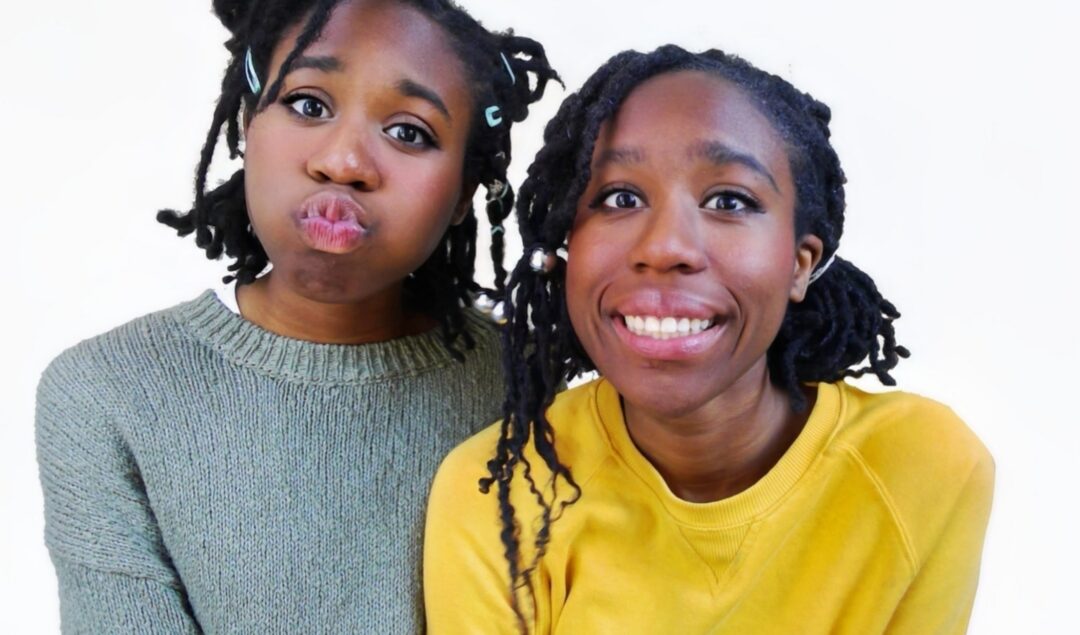Meet The Twin Sisters Creating A Positive Space For Young People Online

When was the last time a social media platform made you feel positive about yourself? As much as we don’t want to admit it, most of us spend our days doomscrolling, which can have a negative impact on our self-esteem. The simplest solution would be logging off, but you can’t escape social media forever.
For Gen Z and Gen Alpha, social media often shapes who you are, as high social media usage is often linked to low self-esteem for young women.
17-year twins Avril Piera and Paris Ofe know about this all too well. They struggled to fit in on mainstream social media platforms, so they built their own: Fearless Identities. The website is a social site where people can anonymously share their achievements and positive milestones without the likes or followers.
Their mission is to normalize celebrating all forms of growth, no matter how big or small, and to make the internet feel like a kinder, safer place. POCIT sat down with Piera & Ofe to discuss Fearless identities, Black representation on social media, and their hopes for the website’s future.
Not being seen on the internet
The idea of the website first came to Piera and Ofe when they moved to a new school at the age of 14. “We felt really excluded, and we didn’t have many friends or anything. So we just wanted a place where we felt like we belonged, and that was really only found on our website,” Ofe said.
“It (social media) was all about comparison. You had to have a certain look or have a bit of money, yeah? So we just wanted to make a place where everyone felt in.”
“Growing up, it felt like my self-value was based on, like, how much people liked me, if that makes sense.” “I’m not famous, I don’t have many followers, and I also didn’t have many friends at school, so seeing other people post things with their friends made me feel inferior,’ Piera adds.
Which is why a key feature of the website is that it does not have any likes. “We don’t want to make it feel like Instagram, you know. We want to create a space that’s always uplifting. No one will feel compelled to compare based on likes, as that is usually what people use to compare themselves to other people.”
Being a Black girl who codes
There’s also the racial aspect of being online, as Piera & Ofe felt like they couldn’t be themselves on social media. “We feel like we have to tone ourselves down. I also feel like there aren’t many Black girls who can code. So it’s hard trying to be ourselves, we only started really being ourselves like last week,” Piera adds.
Piera learned how to code in school during her year 7 (6th grade). “I just started coding, and I really enjoyed it, but like in lockdown, when we’re all at home, that’s when I started coding a lot more.”
She didn’t feel like she would find her community, as coding is usually associated with boys. Although the girls launched the website when they were 14, they took a break for three years to focus on school. But Avril’s encounter with a fellow Black female coder made her think about relaunching the website.
“That’s when I was like, yes, I do like coding, why am I hiding this? So I want to make other Black girls know, look, if you’d like coding or any, any hobby at all, where it doesn’t feel like you have a community, you will eventually find that community,” Piera says.
Fearless Identities’ Impact
The twins say they’ve received a lot of positive feedback, specifically with finding new opportunities. “We have a news section where people can get featured for the stuff they do, the things they want to promote, and then we have the regular posts where people post their achievements. I guess it’s brought opportunities and helped us learn how to code better,” Ofe says
When asked what they hope for fearless identities in the future, they say: “We want to use this platform to inspire other girls and black girls to code. We’d also like to speak at schools as well, and use it as, I don’t know what to call it, like a form of advocacy, as well as a website.”
They continue: “Hopefully, it will also eventually turn into an app.”
Image: Fearless Identities



